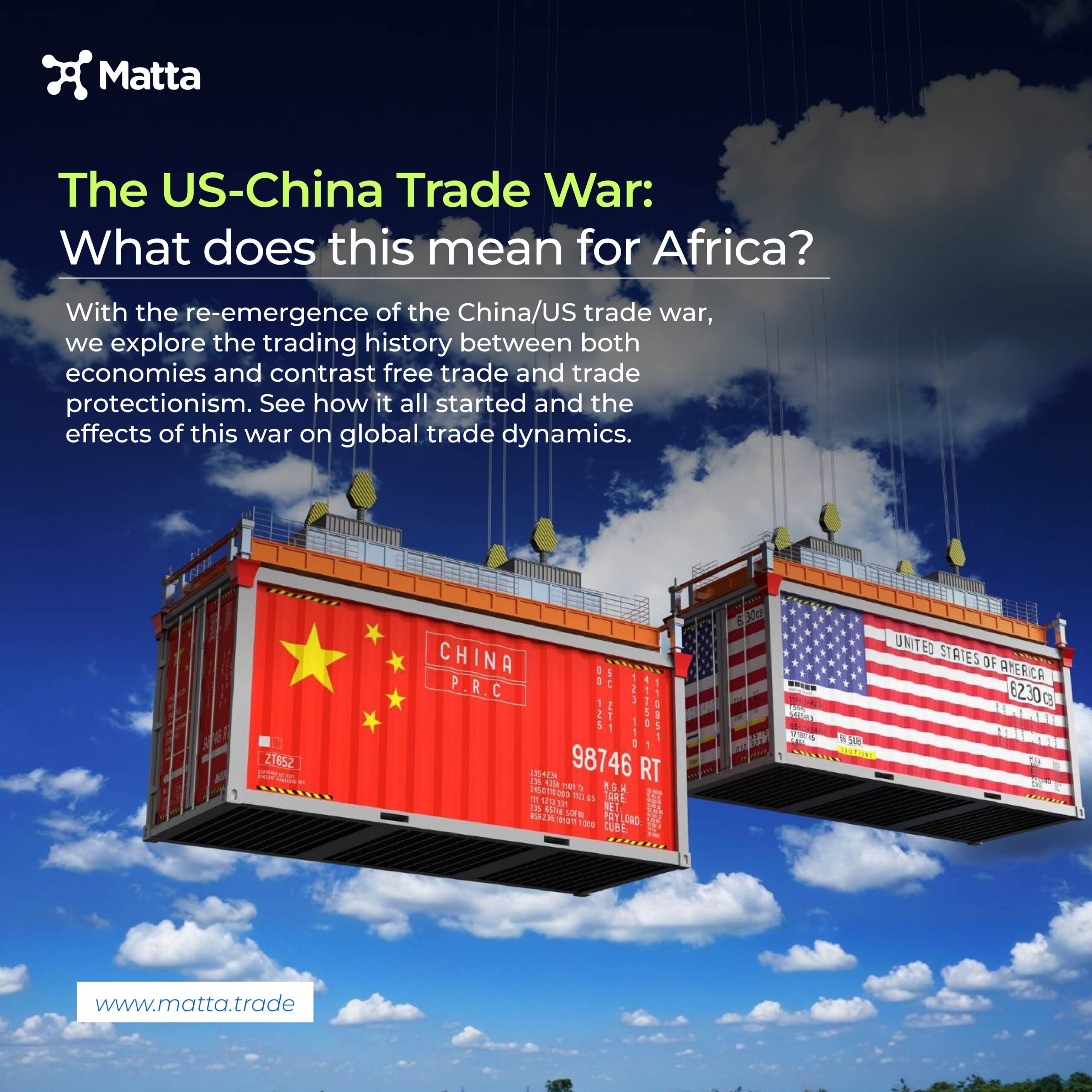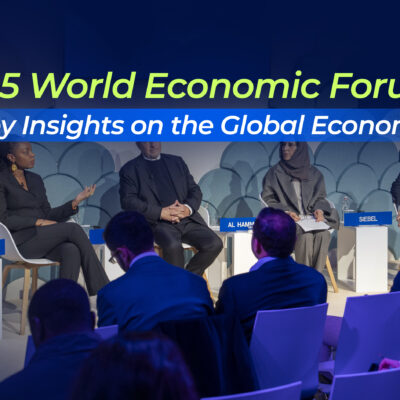
It’s 2025, and the US-China trade war, a conflict with a rich historical backdrop, has again dominated headlines. In recent years, this age-old trade war between two of the world’s largest economies has reshaped the global economic landscape. To many, it is a vivid example of protectionist policies in action.
Last month, China was hit with fresh tariffs by the US, and like clockwork, China responded in a similar fashion. This isn’t the first time in recent years; it also occurred in 2018.
When things like this happen, it is a good opportunity to dust off our economic textbooks and revisit the classic “Free trade vs Trade protectionism” discussion.
While there is a global free market (coordinated by the World Trade Organization) where countries can access and grow their economies, some countries argue that others may have an unfair advantage. This is what leads to trade protectionist policies.
Here, we will explore the genesis of China/US trade relations, compare free trade and trade protectionism, and outline the effects of the changing global trade dynamics, especially on an emerging economy like Africa.
LEARN WITH MATTA: What Is a Trade War?
A trade war occurs when one country retaliates against another’s perceived unfair trade practices by imposing punitive tariffs or other import restrictions. While such measures aim to protect domestic industries and balance trade deficits, the ultimate effect is often a series of escalating economic barriers that hurt consumers, businesses, and regional/global economic growth.
Trade wars have taken many forms historically. From the colonial rivalries of the 17th century to the infamous Opium Wars between Britain and China in the 19th century, nations have long used trade as both a tool and a battleground for asserting economic dominance. More recently, policies like the US Smoot-Hawley Tariff Act of 1930 illustrate how protectionist measures can backfire, sparking retaliatory actions that deepen economic downturns—as was partly the case during the Great Depression.

Trade Wars vs. Trade Protectionism
The theory of free trade is rooted in the principle of comparative advantage—the idea that if a country enjoys an absolute advantage in producing goods, trade can still benefit both trading partners.
For instance, Germany and Japan are both car manufacturers. German cars like BMW and Mercedes are known for engineering, while Japanese brands like Toyota and Honda are reliable and fuel-efficient. Even though they compete, these brands co-exist because of specialisation. That’s comparative advantage in action.
In contrast, trade protectionism involves restricting international trade activities using policies, such as high tariffs or import quotas, to protect domestic jobs and industries from foreign competition.
The U.S.’s efforts to protect domestic steel producers is a good example of a protectionist policy. Through these sorts of policies, governments hope to safeguard their economies.

The History of US-China Trade
Did you know that for most of the 17th and 18th Centuries, Chinese goods symbolised luxury for wealthy Europeans and their American counterparts?
The first contact between the People’s Republic of China and a major American corporation was in January 1972.
During the six years that followed, trade between both countries grew from $5 million to $142 million in 1978. Seeing the mutual benefits of trade- both countries signed a bilateral trade agreement in 1979.
Since then, trade between them has blossomed across various industries. Due to China’s efficient manufacturing, customers in the U.S. have benefitted from lower prices, while American companies have enjoyed access to China’s vast markets.
However, the long-term interdependence of both countries has brought concerns over manufacturing job losses, intellectual property theft, and national security risks. Leading to a string of actions and reactions on both sides.
2018 till Date
In 2018, under President Donald Trump’s leadership, the US imposed tariffs on a wide range of Chinese goods, from steel and aluminium to solar panels and washing machines.
The rationale was to counteract what the US perceived as unfair trade practices, such as forced technology transfer and state subsidies that distorted the market dynamics.
In response, China imposed significant tariffs on American agricultural products and other goods. This mainly affected the trading of Soybeans around that time because China used the most Soybeans worldwide and sourced most of its supply from the US. Hence, an additional 25% Chinese tariff on US soybeans has had enormous consequences for both countries.

The Ripple Effects of Fragmented Global Trade
Beyond the immediate impact on both countries, trade wars often reshape the global economy. Trade wars have far-reaching effects, from supply chain disruptions to inflationary pressures and shifts in geopolitical alliances.
According to the IMF, the US-China trade war in 2018 reduced global economic growth by 0.8% in 2019.
Emerging economies, particularly in Africa, are uniquely vulnerable to the fragmentation of global trade. This challenge presents an opportunity for many African nations currently integrating into global supply chains.
You can see it as Africa being squeezed out or forced to compete in an increasingly complex and uncertain environment or as an opportunity for Africa to emulate the policies that led to South Korea’s astronomical economic advancement. We discussed this in detail in another article titled “How Africa Can Replicate South Korea’s Rapid Economic Growth.”

Matta’s Critical Role in Connecting Africa to the World
In an era marked by rapid technological development and escalating trade tensions, technology has emerged as a key enabler of free trade.
Africa must leverage technology to create innovative solutions that will help diversify supply chains and reduce dependency on specific markets. We must also ensure that even the smallest players- SMEs, artisan farmers/miners, and aggregators- can access international trade networks.
With digital platforms and advanced logistic systems, there are reduced barriers to international commerce.
As global trade faces unprecedented challenges due to fragmentation and protectionism, platforms like Matta are pivotal in ensuring that emerging economies, particularly Africa, are not left behind.
Matta—Africa’s premier chemtech solution— is more than just a technological platform. It is a bridge that connects the world to Africa and vice versa, ensuring that emerging economies, particularly in Africa, are not left behind in the face of unprecedented challenges in global trade.
By leveraging cutting-edge technology, Matta facilitates seamless trade and communication between African markets and global partners, empowering local businesses to access international markets.
Matta’s digital infrastructure provides a secure and transparent trade environment, helping to level the playing field for African enterprises competing with well-established global players.
Rounding Up
As the US-China trade war and similar conflicts continue to highlight the vulnerabilities of fragmented global trade, the importance of technological innovation becomes ever more apparent.
Countries and companies can better navigate global trade uncertainties by embracing digital platforms, automating supply chains, and harnessing data analytics.
This technological empowerment is particularly crucial for African emerging economies, where traditional trade barriers have often limited growth and development.
At Matta, we are committed to consistently empowering African industries with practical technology solutions that help them operate efficiently.
Thank you for reading this article.

